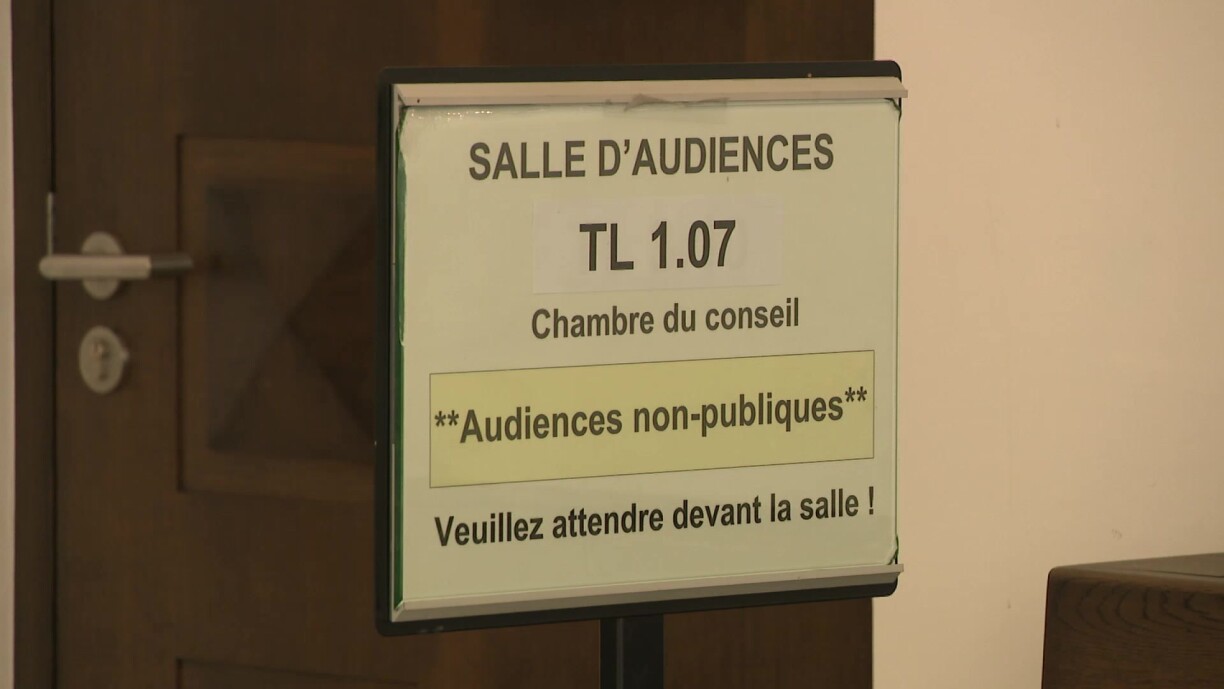
The central question looming over the proceedings remains whether there was an intentional effort to tarnish the reputation of former MUDAM director Enrico Lunghi. Was the report, part of the Nol op de Kapp programme, manipulated to sensationalise the story? Within this context, accusations of defamation, slander, and involuntary bodily harm persist, and on the second day of the trial, answers to these questions remained elusive.
At the heart of the matter is a report aired seven years ago, capturing an incident where Enrico Lunghi physically confronted former journalist and defendant Sophie Schram during an interview.
The accused parties include the report’s author, Marc Thoma, and RTL’s then head of programming, Steve Schmit, who both took the stand on Tuesday. However, the two had completely different assessments of the report and the overall situation.
Thoma defended his report, contending that no manipulation or distortion of reality had occurred. He argued that it is normal for reports to be edited. In contrast, Steve Schmit, particularly in the context of an initial, unbroadcasted version of the report, held a different view. He asserted, “To me, it appeared to be orchestrated for sensationalism, deviating from our code of ethics and programming standards.” Schmit consulted with two colleagues at work and ultimately argued that the report, in its current form, should not be aired. This decision was driven by a desire to protect RTL’s integrity and to establish an accurate account of the events that transpired.
The judge raised concerns about whether the report’s editing had intensified the dramatic aspects of the incident that was broadcast. “One might infer an intent to cast Mr Lunghi in a negative light and amplify the confrontation,” he remarked. It was noted that the interview continued normally after the altercation, which was not shown in the televised report. In response, Thoma contended, “What is distorted about that? In terms of content, nothing was changed.”
The ongoing trial also delved into the intricacies of who sanctioned the broadcast of a report that was considered partially controversial. During Tuesday’s court proceedings, it appeared that former RTL director general Alain Berwick had granted the green light for the report’s airing. However, he did so without having seen the full report because he was abroad.
Prior to this decision, Schram, nursing a bandaged wrist, appeared in Berwick’s office and asserted that she had been intimidated and threatened. At that moment, Berwick was presented with an excerpt from the report on Enrico Lunghi, in which the latter loses his temper. Some time later, it was said that Schram had filed a complaint against Lunghi. Because the company did not want other media outlets to pick up on this, it was collectively agreed that the report would proceed to broadcast – a decision which was openly endorsed by some and silently or reluctantly supported by others.
“I felt passed over,” said Schmit about the day of the broadcast. He conveyed his dismay that the decision to air the report in its entirety, coupled with online and radio publication, was made without consulting him. Ultimately, it emerged that no legal charges were ever filed, despite a lawyer claiming in the report that this would be done. People were lied to, according to Schmit.
The trial is set to resume on Wednesday, with a focus on the upcoming statements from former RTL general director Alain Berwick.
Related
‘Lunghi Case': Debates around report broadcast took centre stage on Monday
In October 2016, RTL journalist Sophie Schram interviewed the then director of the Grand Duke Jean Museum of Modern Art (MUDAM), Enrico Lunghi, for the programme Den Nol op de Kapp. When Schram asked Lunghi why he refused to exhibit paintings by a certain Luxembourgish artist, the director lost his cool. The footage broadcast on TV showed Lunghi pacing back and forth before grabbing Schram by the wrist in which she held her microphone and declaring “Seriously, if you broadcast this, I will never talk to you again.”
However, it was later revealed that the footage had been edited in a questionable manner. The edited version omitted both the fact that Schram had repeatedly asked the same question and that the interview actually continued for several minutes after the incident. The original footage, which was eventually made public, even showed that Lunghi had apologised for his behaviour. It also revealed that Lunghi and Schram were not strangers but had known each other for a long time.
The affair had significant fallout, leading to the resignation of Enrico Lunghi as MUDAM director and Alain Berwick as director general of RTL. Berwick as well as the then head of programming Steve Schmit, the creator of the original report, Marc Thoma, and Schram have been sued for slander, defamation, and involuntary bodily injury in the form of “mental health problems” by Lunghi.